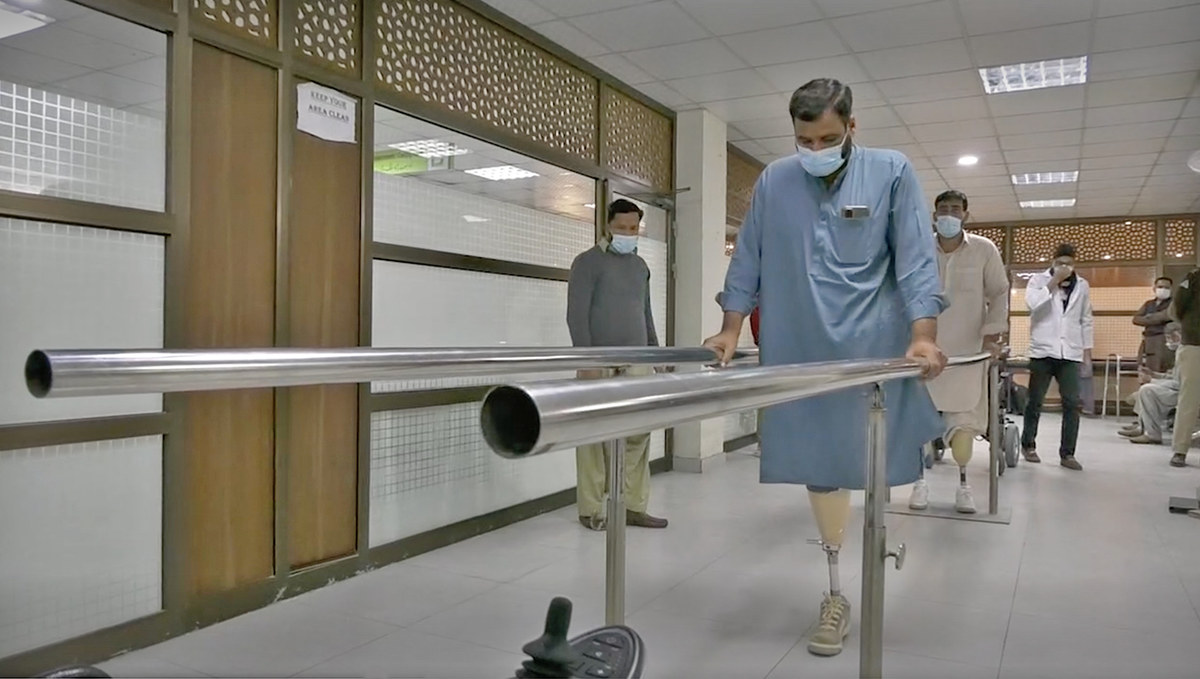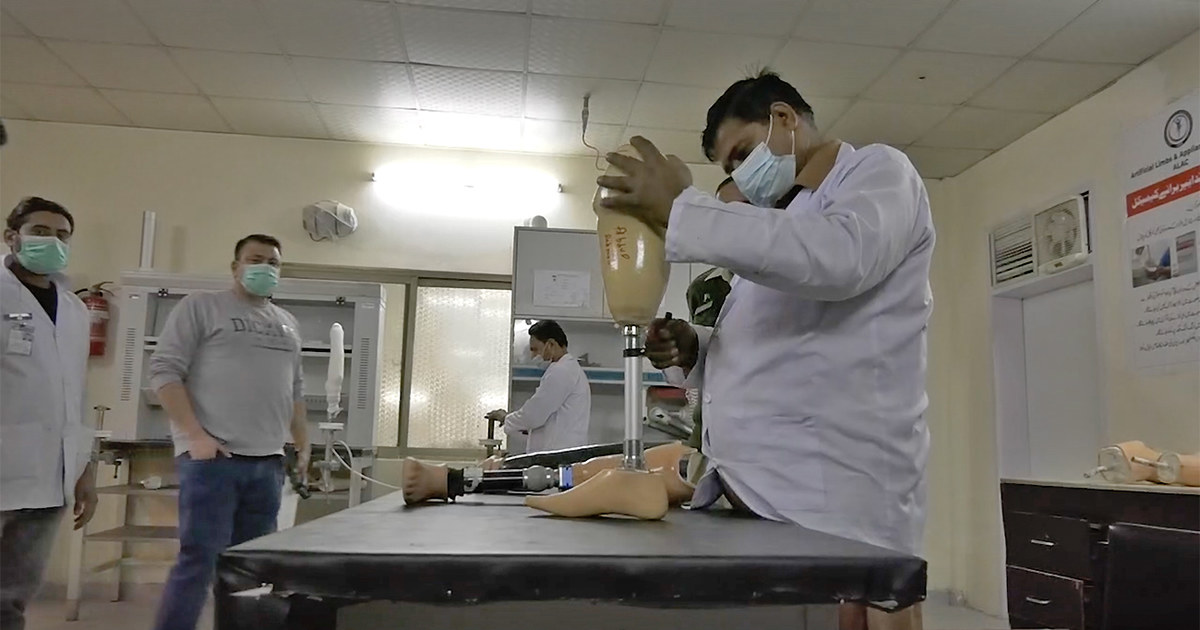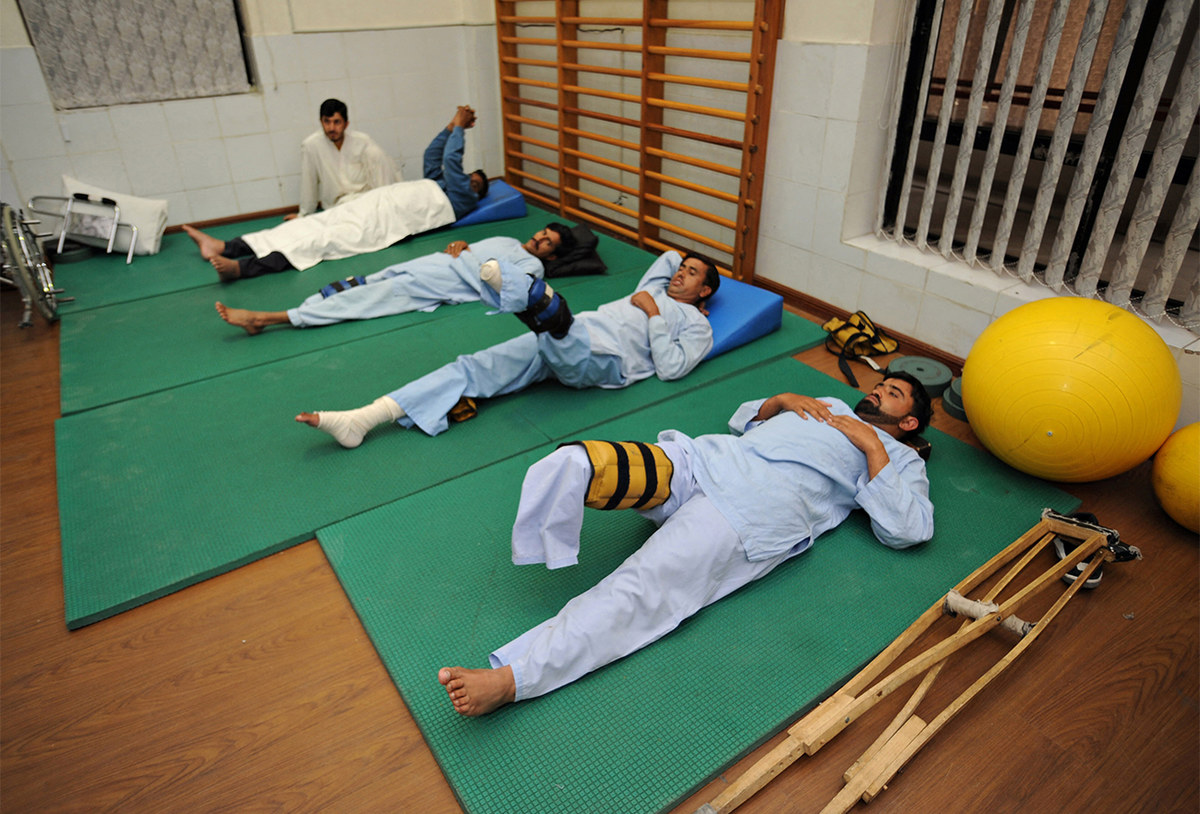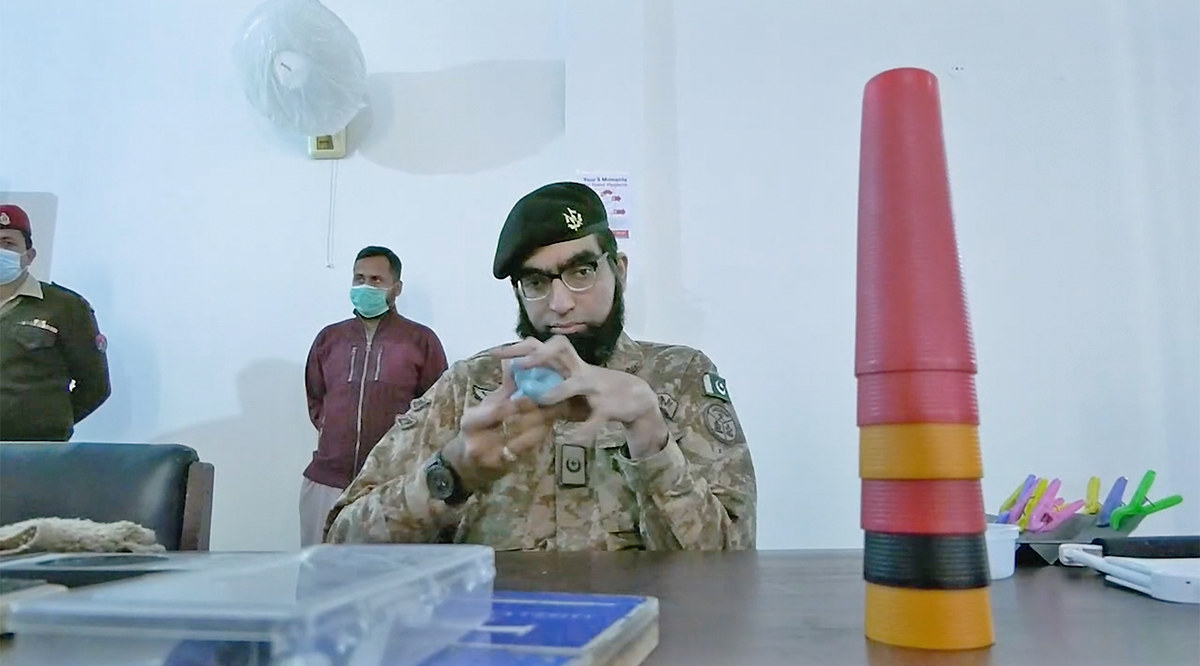RAWALPINDI: Walking up and down a large hall at the Armed Forces Institute of Rehabilitation Medicine (AFIRM), Pakistani amputees are learning to use their new artificial limbs after being wounded in various conflicts that have marred the country for over two decades.
Among them is Sepoy Raees Khan who was injured last May when a land mine exploded on the Line of Control (LoC) dividing the disputed Himalayan region of Kashmir where Pakistani and Indian troops have been engaged in cross-border fighting for decades.
When Khan woke up in a military medical camp a few days later, he was told both his legs had to be amputated. In July, he was moved to AFIRM, fitted with prostheses and given large doses of caring and therapy at a one of a kind facility in Pakistan that helps the war wounded as well as civilians with natural disabilities and victims of road and other accidents.
“Thank god, I had started walking on a first set of legs but then wounds formed, so they have changed them and fitted me with a new pair,” Khan told Arab News as he practiced walking on artificial legs with the support of metal handle bars. “I am now practicing to walk without any help.”

A patient at the Pakistan's Armed Forces Institute of Rehabilitation Medicine (AFIRM), walks during a routine exercise in Rawalpindi, Pakistan, on December 6, 2021. (AN Photo)
More than 10,000 soldiers have been injured in Pakistan since 2001, mostly in improvised explosive device and anti-personnel mine explosions, as well as during cross-border firing and militant attacks. Much of the fighting has been concentrated on the Line of Control, as well as the country’s northwest regions bordering Afghanistan where Al-Qaeda, Taliban and other militant groups have waged a war to overthrow the Pakistani state.
According to the Pakistan government, between 2006 and 2015, nearly 50 militant groups declared war on the Pakistani state, conducting over 16,000 terror attacks, with 80,000 casualties, including of military personnel deployed across the country. Pakistan also has one of the highest rates of casualties in the world due to land mines and explosive remnants of war. In 2017, it recorded 135 casualties, which was the highest in the world and made up 28 percent of the global total.
AFIRM aims to aid these maimed victims of Pakistan’s many wars and was set up in 1985 under a presidential order. An Outpatient Department was added in 2001 and today, both military and civilian patients are treated at the facility for natural disabilities as well as spinal cord and musculoskeletal injuries and strokes. The facility has a 40-bed amputee ward with an additional 30-40 beds for outdoor patients. In the last two decades, the facility has fitted about 1,000 prosthetic limbs while AFIRM’s outpatient department sees at least 70,000 patients a year.

A technician is fixing a prosthetic leg at the Pakistan's Armed Forces Institute of Rehabilitation Medicine (AFIRM) in Rawalpindi, Pakistan, on December 6, 2021. (AN Photo)
At a limb production center established on the premises in 2007, parts for artificial limbs can be produced for as low as Rs10,000 ($42) compared to $5,000 from foreign manufacturers.
“The good thing about this institution is that in the whole of Pakistan there are a total of about 60 rehabilitation specialists, out of which 46 we have trained here,” AFIRM Commandant Maj. Gen. Zafar Ali told Arab News. “The Institute keeps on increasing in size as well as the number of patients are also increasing.”
“Basically the aim is to have an indoor and outdoor hospital for armed forces individuals and also for the civilians so that they should have all the treatment under one roof, that was the basic idea … Predominantly we treat soldiers but if civilians come they are also looked after here.”

Disabled military veterans at Pakistan's Armed Forces Institute of Rehabilitation Medicine (AFIRM) perform exercises in Rawalpindi, Pakistan, on February 18, 2011. (AFP/File)
A resettlement and vocational training department, where soldiers learn computer, hosiery and mobile phone repair skills, among others, was inaugurated in 2014.
“Once a person is disabled, it’s considered to be a social stigma. But what we do is … we call the families, they are incorporated in the treatment plans and at the same time, we have got a resettlement area here in this hospital, where we train them in mobile, hosiery, computer training programs and they can be utilized as a useful member of the society,” Ali said. “The family is with them and the army is with them.”
Lance Naik Asif Ali, who hails from a village in the southern Sindh province, was wounded in cross fire on the Kashmir border in 2020 and lost his leg. Today, he has a prosthetic leg and is learning to repair cell phones at AFIRM’s vocational training center.
“We have learnt a lot because of help from AFIRM,” Asif told Arab News as he studied cell phone parts under a lamp. “God willing, soon I will go back to my village and do this work there and also teach my friends.”

An army officer, at the Pakistan's Armed Forces Institute of Rehabilitation Medicine (AFIRM), is pictured during an exercise in Rawalpindi, Pakistan, on December 6, 2021. (AN Photo)
Lance Hawaldar Mir Alam was fitted with an artificial limb after his right leg had to be amputated following a rocket fire injury in 2019.
“Now I am getting my treatment here, I have an artificial leg, it is getting adjusted, I am practicing using it,” said Alam, who had served in the army for 13 years before being wounded.
When asked if he would serve the Pakistan army again in the future, he said: “That’s why I joined the army: to defend the country and nation. I am ready for duty even with my artificial leg.”
















